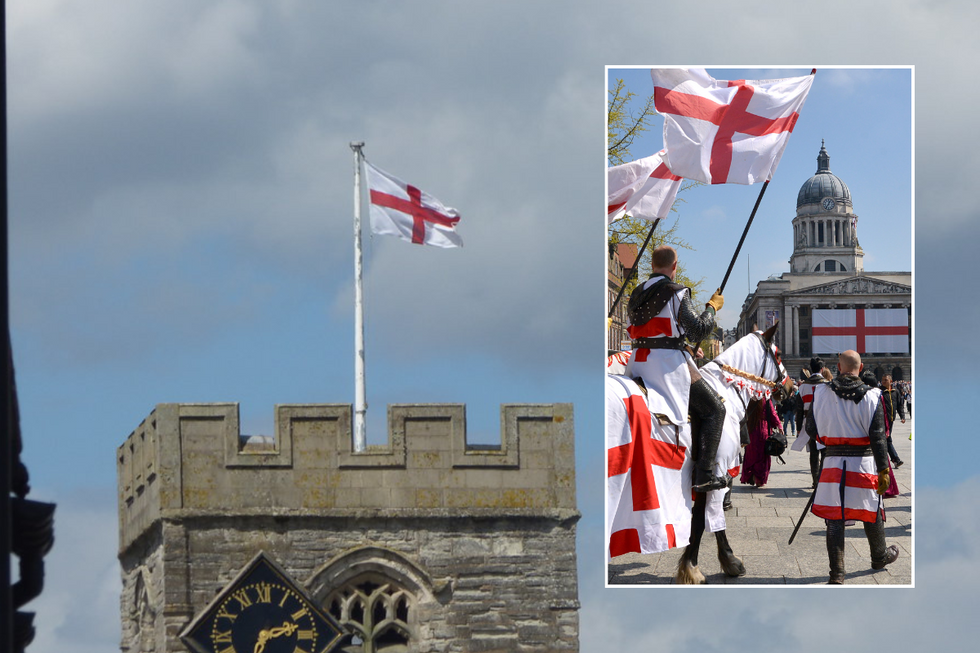Church of England MOVES St George's Day in bid to maintain age-old tradition
The date was last moved in 2019, causing confusion among politicians
Don't Miss
Most Read
Trending on GB News
The Church of England has moved St George's Day in order to keep with a centuries-old tradition.
St George's Day is usually celebrated on April 23 every year. However, the Church of England has moved this year's feast day to Monday, April 28 to respect tradition.
The change impacts Christian celebrations across the country that would normally take place today.
According to church rules, no saint's day can take place in the week before or after Easter, forcing the traditional date to be shifted.

The Church has abided by the tradition for this year
WikICommons/PA
A note issued by the church states: "When St George's Day or St Mark's Day falls between Palm Sunday and the Second Sunday of Easter inclusive, it is transferred to the Monday after the Second Sunday of Easter.
"If both fall in this period, St George's Day is transferred to the Monday and St Mark's Day to the Tuesday."
This isn't the first time St George's Day celebrations have been affected by this ecclesiastical rule.
The feast day was last moved in 2019, creating confusion among politicians.
LATEST ON ST GEORGE'S DAY 2025:
- ‘People are scared!’ England’s most English town admits why ‘embarrassed’ locals won’t celebrate St George’s Day
- St George's Day LIVE: Thousands take to streets to mark England's national day - 'Let's be proud!'
- Politics LIVE: Keir Starmer takes veiled swipe at Nigel Farage in St George's Day tribute as PM vows to 'reclaim English flag'

The flag is displayed every year in Nottingham for St. George’s Day
GB NewsThen Prime Minister Theresa May and London Mayor Sadiq Khan posted messages wishing people a "happy St George's Day" on the wrong date.
The Labour Party was particularly mocked for posting celebratory messages a day early on Twitter, now known as X. The mishap led to a church historian branding politicians as "illiterate about Christianity" for their calendar confusion.
King Edward III made St George the Patron Saint of England when he formed the Order of the Garter in St George's name in 1350.
The patron saint is identified by his sigil, St George's Cross - the iconic red cross on a white background.
Many pubs, community centres and attractions host special events to mark the occasion.
Morris Dancing, a form of English folk dance with bell pads attached to dancers' shins, is a popular feature of celebrations.
In Nottingham, an impressive display of patriotism was unveiled ahead of the traditional date.
The city unfurled what has been described as England's largest St George's flag, measuring 60ft wide and 26ft tall.








